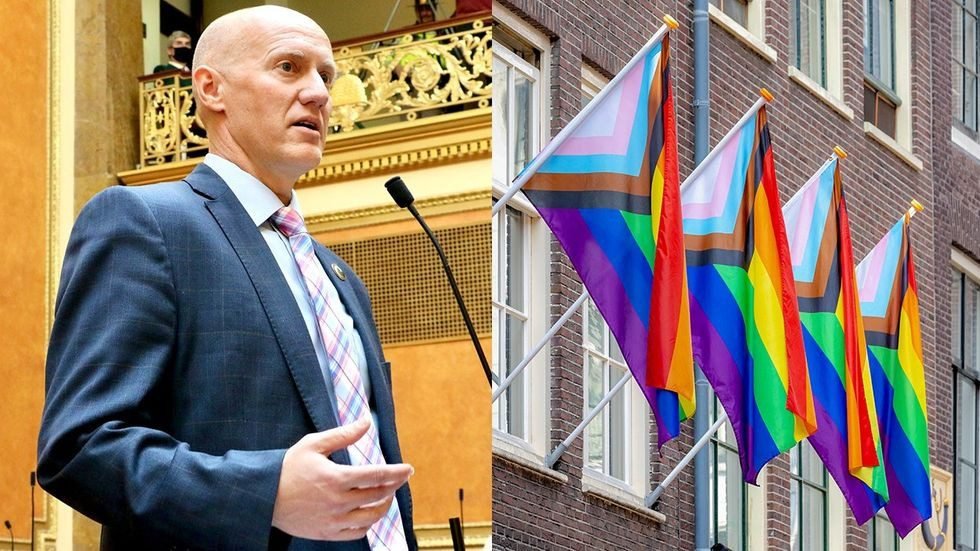Utah has become the first state to prohibit the flying of LGBTQ+ pride flags, MAGA flags, and other unapproved flags at government buildings and schools. This decision was made by Republican Governor Spencer Cox, who allowed the ban to become law without his signature, despite having serious concerns about the policy. The ban is set to take effect on May 7, 2025. Starting May 7, state or local government buildings will face fines of $500 per day for flying any flag other than the United States flag, the Utah state flag, military flags, or a few others approved by lawmakers. This includes political flags supporting a specific candidate or party, such as the “Make America Great Again” (MAGA) flags. The ban also extends to prohibiting teachers and government employees from hanging any restricted flag in their classrooms or offices.
The new law has sparked significant debate and controversy. Proponents of the ban, including Republican sponsors Rep. Trevor Lee and Sen. Dan McCay, argue that it is meant to encourage “political neutrality” among teachers and other government employees. However, opponents claim that the ban aims to erase LGBTQ+ expression and takes authority away from cities and towns that do not align politically with the Republican Legislature. The ban could create tension between the state and its largest city, Salt Lake City. The city typically honors Pride Month each June by displaying flags that celebrate its large LGBTQ+ population. In protest of the flag ban, local leaders have illuminated the Salt Lake City and County Building in rainbow lights each night since the Legislature sent the bill to Governor Cox’s desk. The city’s attorneys are currently evaluating the law, and it remains unclear what actions the city will take once the ban takes effect.
Governor Cox explained his decision in a letter to legislative leaders, stating that he agreed with the “underlying intent” of the bill to make classrooms politically neutral but believed it went too far in regulating local governments. He also noted that the law, by focusing narrowly on flags, does not prevent other political displays such as posters or lighting. Cox expressed his support for the LGBTQ+ community, acknowledging the difficulties recent legislation has caused. Utah’s flag law goes further than similar measures in other states. For instance, Idaho recently signed a bill that only applies to schools, while Utah’s law extends to all government buildings. Other states, like Florida, are also considering proposals to ban pride flags and other politically charged flags in schools and public buildings. This trend highlights the ongoing debate over political expression and neutrality in public spaces across the United States.




